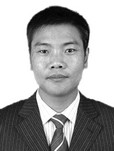Development trends in modern sport culture of Russia in context of Hofstede's cultural dimensions theory
Фотографии:
ˑ:
Dr.Hab., Associate Professor Shi Yukuan1
Dr.Hab., Professor V.V. Ponomarev2, 3
Dr.Hab., Professor D.A. Zavyalov2
Postgraduate student Wang Guotuan2
1XueWushu Culture Research Institute of Henan University,Kaifeng, China
2Krasnoyarsk State Pedagogical University named after V.P. Astafyev, Krasnoyarsk
3Siberian Federal University, Krasnoyarsk
The article actualizes the problem of modern trends in the development of sport culture of Russia. The author considers the aspects of its development from the perspective of Hofstede's cultural dimensions theory. The article presents the criteria for cultural dimensions and contains the analytical studies of these criteria in relation to sport culture in Russia. In terms of sport culture, the author addresses the global challenges of our time, in response to which it can be rightly said that sport is applicable to almost all problems and spheres of social life of both society itself and in the framework of government measures.
The study of the functions of sport culture in Russia showed that it is characterized by the following aspects: longdistance and vertical hierarchical organization focus on individualism and collectivism; expressed masculinity; average level of ambiguity aversion; long-term orientation with preservation of own traditions and values.
The authors conclude that the determination of the criteria for the development of sport culture in Russia according to G. Hofstede plays an important role in understanding the current development trends in sports and its impact on different aspects of social life.
Keywords: sport culture in Russia, Hofstede's cultural dimensions theory, criteria, indicators, global transformations in sport.
References
- Bogolyubova N.M., Nikolaeva Y.V., Bogolyubov M.A. Gumanitarnoe sotrudnichestvo v sporte na prostranstve SNG kak faktor integratsii [Humanitarian cooperation in sport within CIS as integration factor]. Upravlencheskoe konsultirovanie. 2016. no. 4 (88). pp. 90-97.
- Laskene S., Chingene V. Vozmozhnosti analiza sporta kak sotsialnogo fenomena [Possibilities of analysis of sport as social phenomenon]. Sotsiologicheskie issledovaniya. 2007. no. 11.pp. 117-125.
- Mashkov D.M. Vzaimosvyaz i osobennosti vzaimodeystviya kultury, iskusstva i sporta v fizkulturno-sportivnoy deyatelnosti [Interconnection and features of interaction of culture, art and sport in physical education and sports activities]. Vestnik sportivnoy nauki. 2011. no. 5. pp. 64-66.
- Stafeev D.V. Mezhdunarodnoe sportivnoe dvizhenie v kontekste globalnykh problem chelovechestva [International sports movement in context of global problems of mankind]. Vestnik Volgogradskogo gosudarstvennogo universiteta. Ser. 4: Istoriya. Regionovedenie. Mezhdunarodnye otnosheniya. 2015. no. 1. pp. 92-98.
- Teoriya kulturnykh izmereniy G. Hofstede [G. Hofstede theory of cultural dimensions [Electronic resource]. Available at: https://studme.org/90309/kulturologiya/teoriya_kulturnyh_izm



 Журнал "THEORY AND PRACTICE
Журнал "THEORY AND PRACTICE